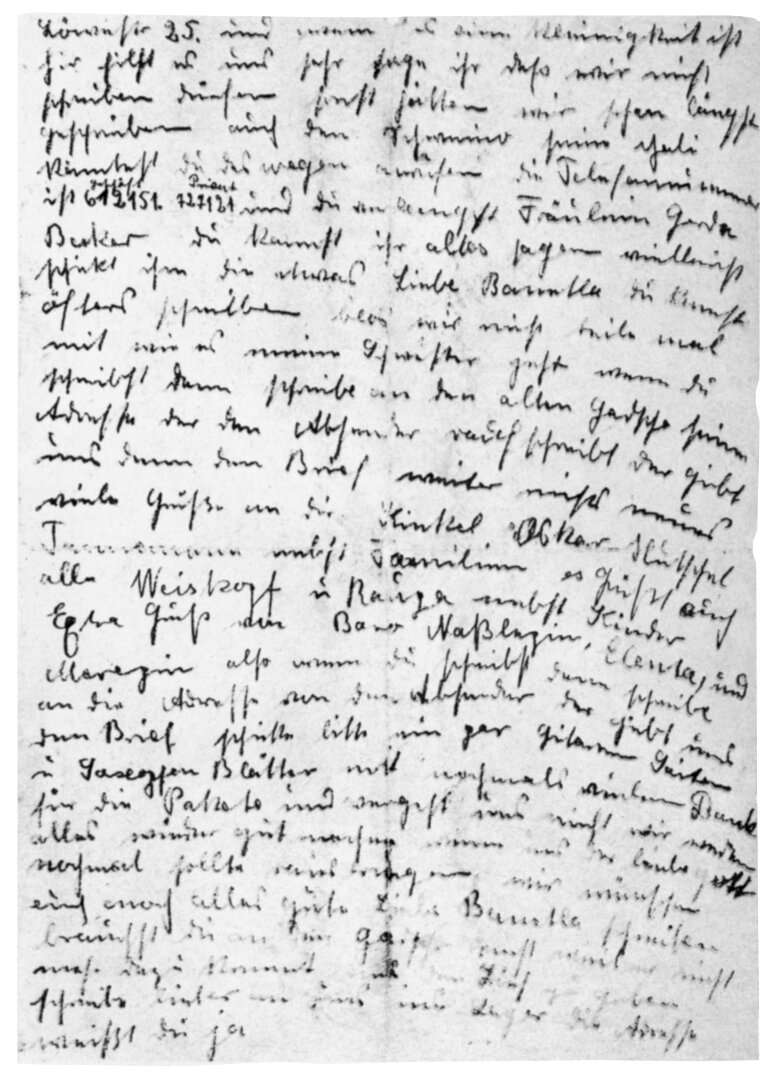

Margarete Bamberger | »Große Krankheit, Elend und Mord« | korkorutne evidentura | Deutsches Reich | 1943 | voi_00001 Rights held by: Margarete Bamberger | Provided by: Lamuv Verlag – Publishing House | Published by: Anita Geigges & Bernhard W. Wette (Ed.). Gypsies Today – Persecution and Discrimination in the Federal Republic of Germany [Zigeuner heute – Verfolgung und Diskriminierung in der BRD]. Lamuv Verlag 1979. Page 271.
‘I have to tell you that my two youngest children have died’
Margarete Bamberger, 1943
Printed in: Anita Geigges and Bernhard W. Wette (eds): Zigeuner heute. Verfolgung und Diskriminierung in der BRD, Bornheim-Merten, 1979, 271.

The letter by Margarete Bamberger was smuggled out of the Auschwitz-Birkenau concentration and extermination camp. It is one of the most moving testimonies about the Nazi genocide committed against Europe’s Sinti and Roma.

‘Our wives and our children hide their tears from us’
Internees of the Linas-Montlhéry camp, 1941
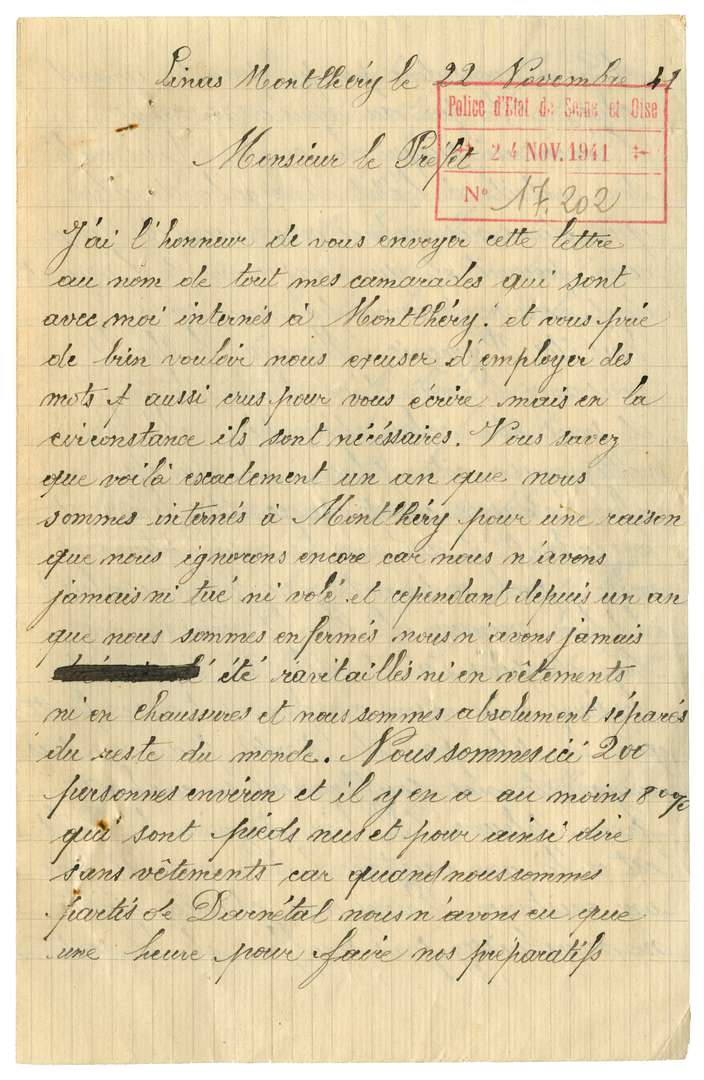
The voices of the victims make chillingly clear just how desperate their situation was and the fears and hopes they had. The murders in the concentration and extermination camps were preceded by years of humiliation, deprivation of rights and forced isolation. The families who were interned at the Linas-Montlhéry camp in occupied France in 1940 and petitioned to be released in 1941 did not survive. They were deported to Auschwitz-Birkenau via the transit camp at Mechelen in Belgium.
Josip Joka Nicolić, 1952
Speakers: Zejhun Demirov (D) | Steve Hudson (E) | Nedjo Osman (R)
Josip Joka Nikolić gives the names and ages of his relatives – wife and child, parents, brothers, sister-in-law, nieces and nephews – who were deported with him in May 1942 from the village of Predavec to the Jasenovac concentration camp. Once they arrived at the camp, they were shot in front of freshly dug pits. He was the only one to succeed in escaping, which makes him one of the few witnesses of the systematic murdering of Roma in the fascist ‘Independent State of Croatia’.
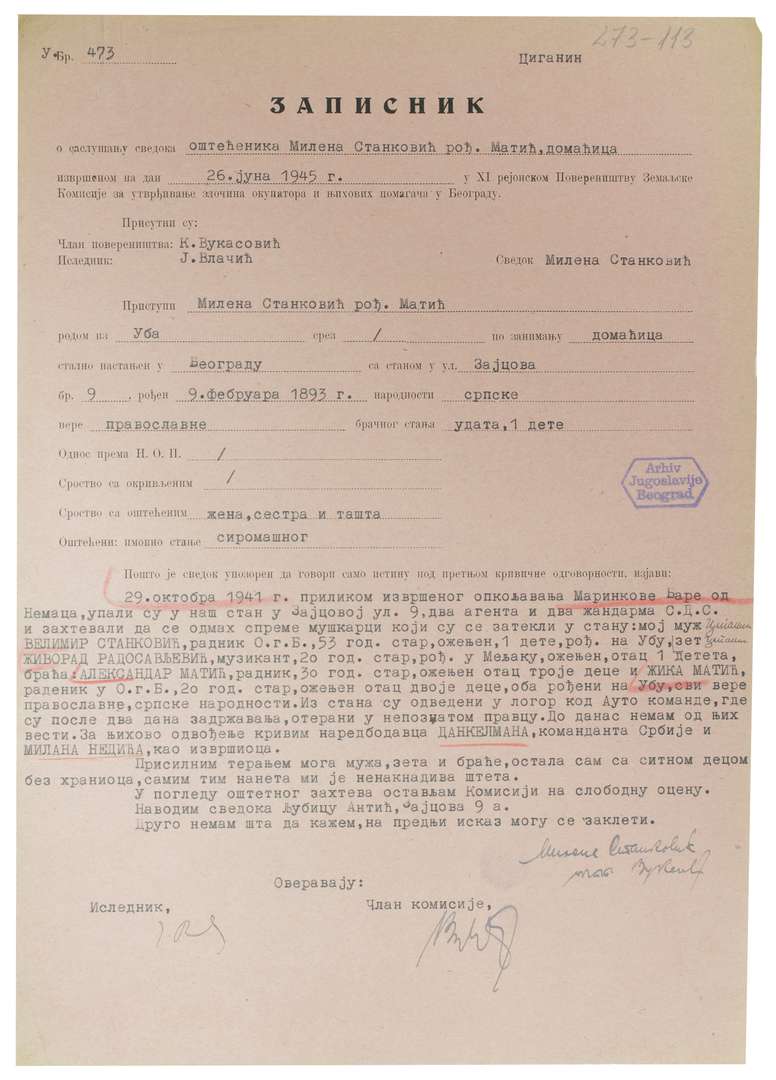
‘On 29 October 1941 the quarter was surrounded by the Germans and all men who were present there had to get ready to leave immediately’
Milena Stanković, 1945
Milena Stanković gives testimony to a commission. It was mainly in German-occupied Southeastern and Eastern Europe that the murders took place not in the camps but close to the victim’s place of residence. For example, in Belgrade, where in October 1941 all Roma were arrested and shot.
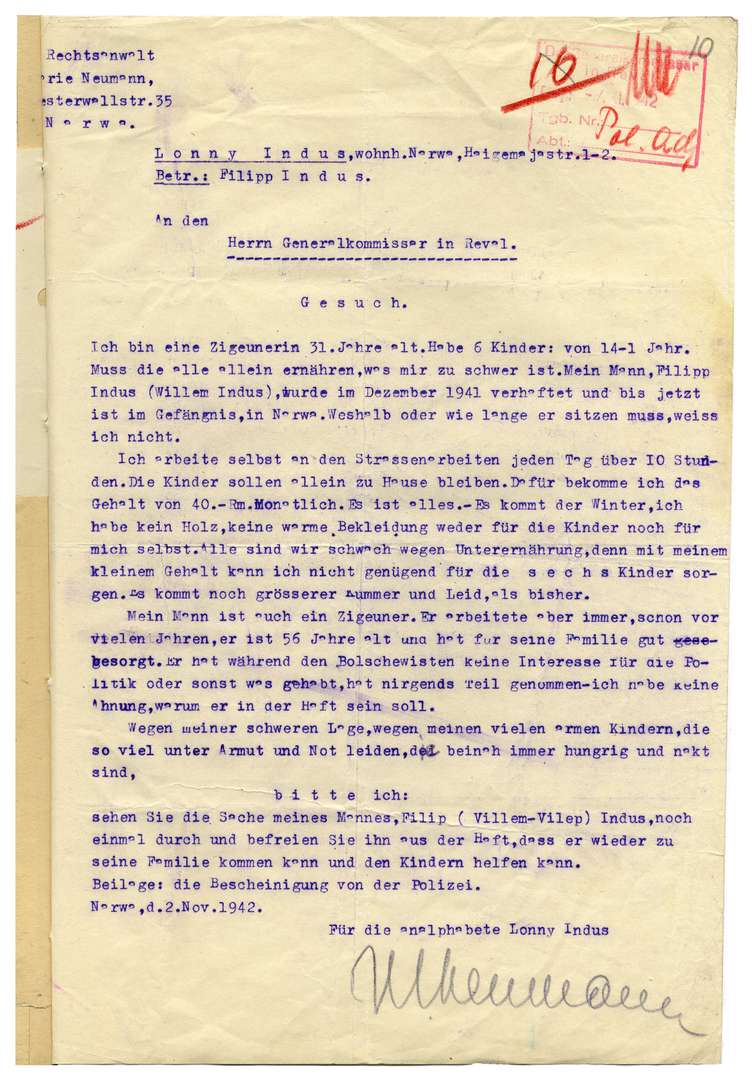
‘I have six children, aged from fourteen to one. Have to feed them all on my own, because my husband, Filipp Indus, was arrested in December 1941’
Lonny Indus, 1942
With these words, the 31-year-old Lonny Indus tries to describe her desperate situation. Her petition to have her husband released is unsuccessful. The couple and their six children were deported in February 1943. None of them survived. Around 95 per cent of the Roma population in Estonia was murdered during the German occupation.
‘Our kolkhoz was surrounded by the Germans, at total of 176 people of all ages – including children and the elderly – were shot dead’
Roma from the village of Aleksandrovskoe, 1943
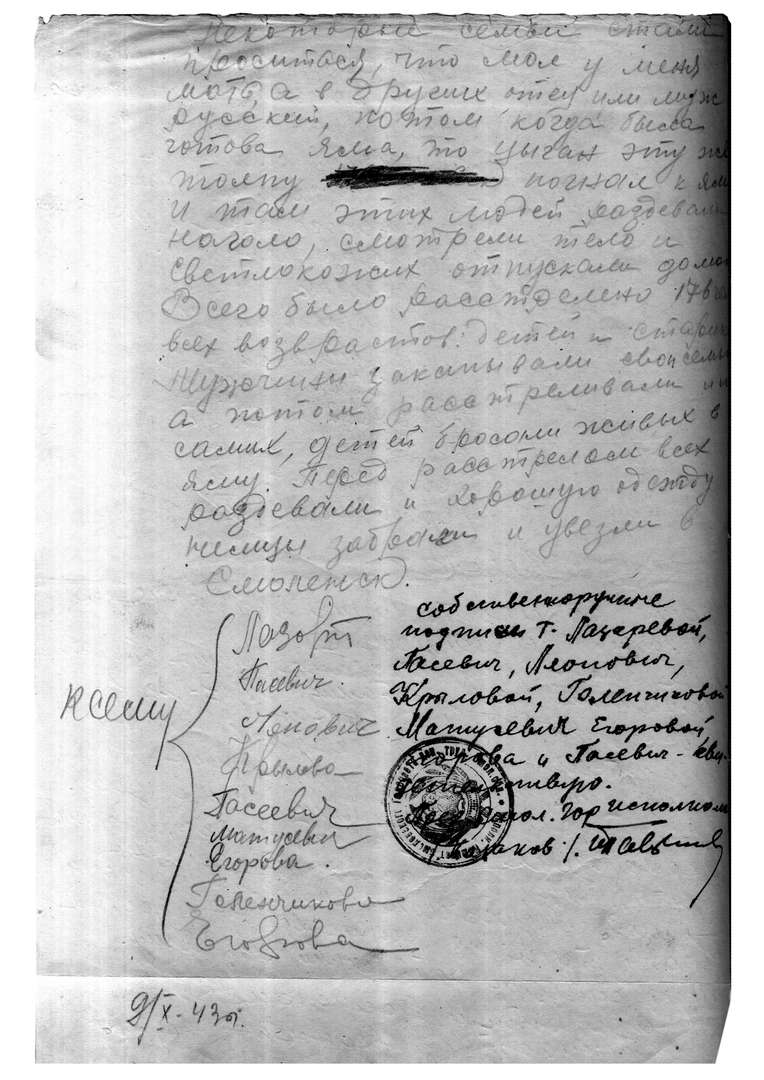
Surviving Roma from the village of Aleksandrovskoe near Smolensk report on the German occupation. Like many other places in the occupied Soviet Union, Crimea was the scene of mass executions of Roma, committed by the mobile task forces (Einsatzgruppen) of the security police.

‘I almost certainly won’t be returning home’
Ivan Ivanov, 1942
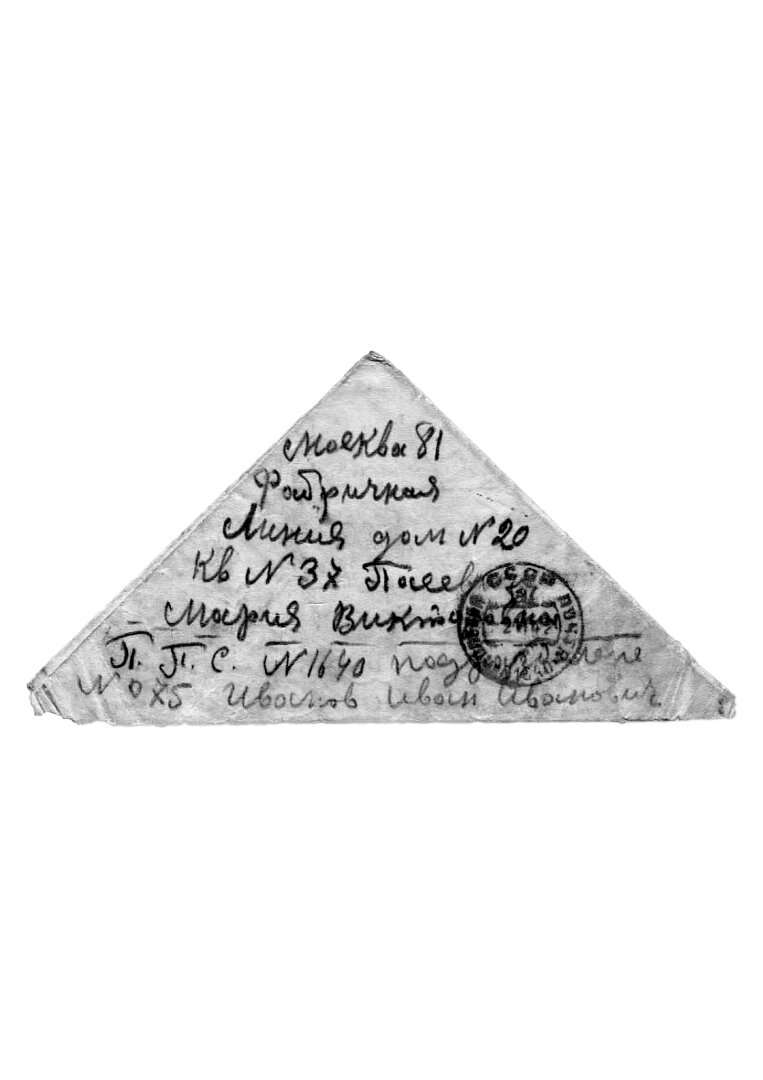
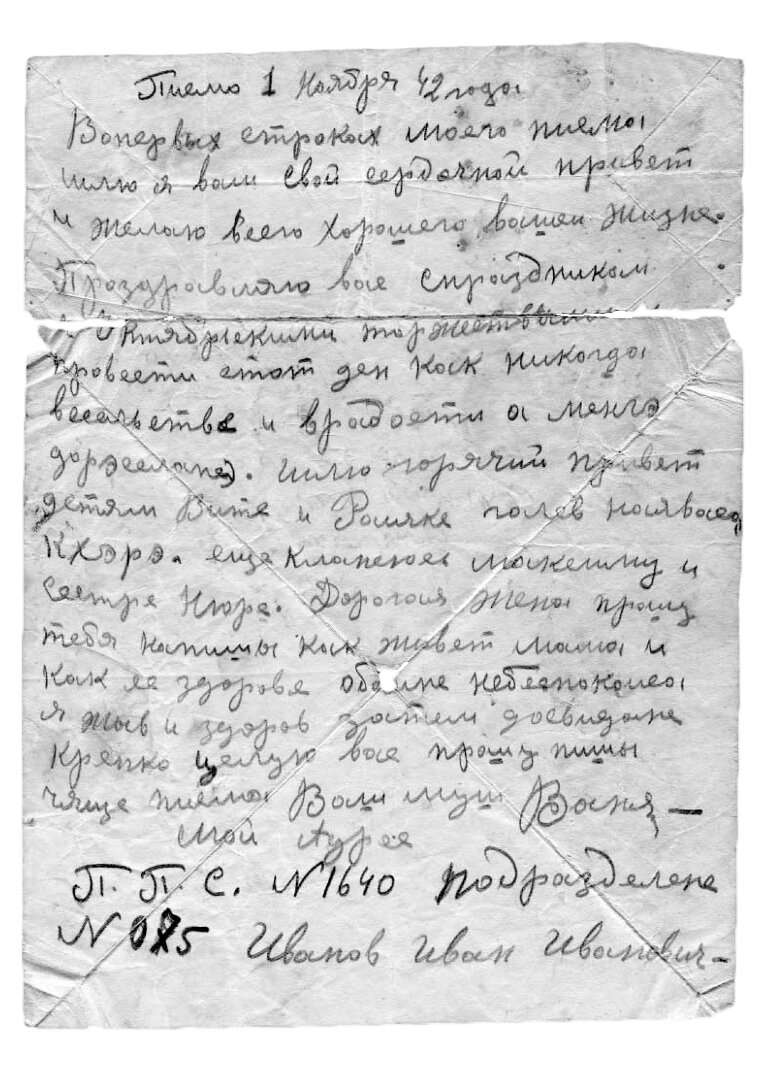
This is the message the 28-year-old Ivan Ivanov sent home while serving at the frontline in Stalingrad. This sentence from the message was written in Romani to ensure that the letter would pass the censorship and reach his wife. Ivanov died in November 1942 while performing military service. He was one of many hundreds of Roma who fought for the Red Army against the invader. In other countries as well, Roma fought actively in the regular armies or as partisans against the armies and allies of the German Reich.
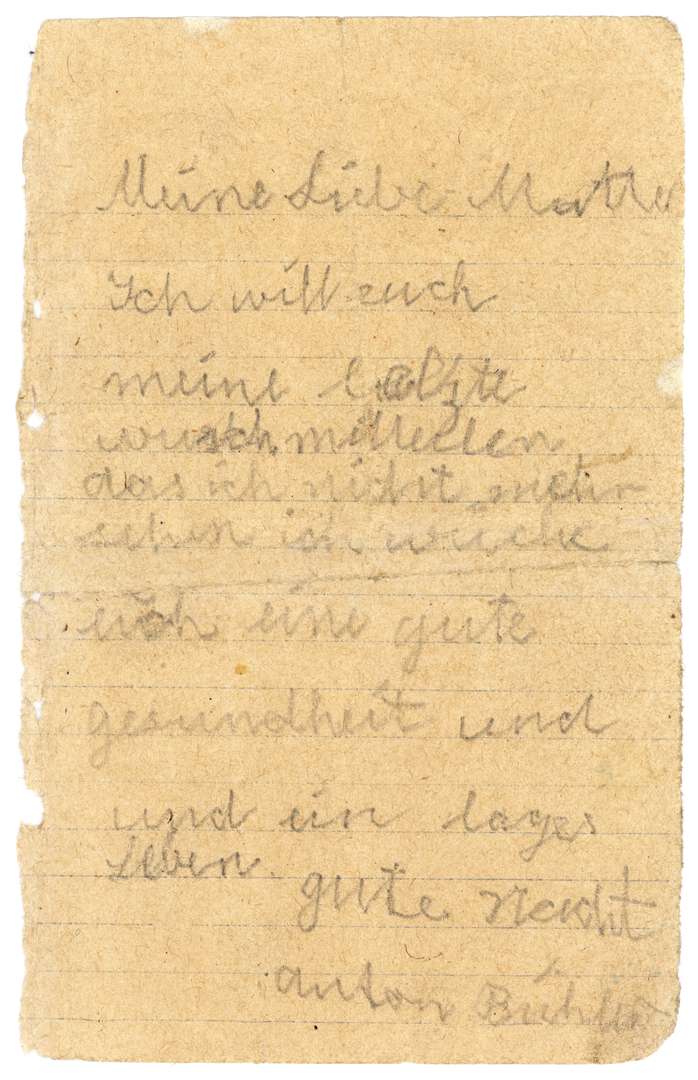
‘I want to send you my last wishes because I won’t see any of you again’
Anton Reinhardt, 1945
On 31 March 1945 the 17-year-old Anton Reinhardt sent these final words to his parents. He was shot the very same day by an SS captain. Facing forced sterilisation, Reinhardt had fled from Germany to Switzerland, from where he was deported back to Germany and then arrested. As he again tried to escape, he was seized and murdered.
Petrus Johannes Vos, 1945
Speakers: Ulrich Marx (D) | Tom Zahner (E) | Nedjo Osman (R)
Like many other survivors, Petrus Johannes Vos tried to find his relatives after liberation. For the most part, the authorities showed little sympathy and made virtually no effort to find out the fate of the deported. As a result, many Sinti and Roma remained in the dark for decades about what had happened to their relatives. Vos first found out much later that his daughter, son-in-law and three grandchildren had not survived deportation to Auschwitz.
‘During these experiments I suffered terrible thirst and at the end had fever. Until the present day I suffer from the consequences of the experiments’
Karl Höllenreiner, 1947
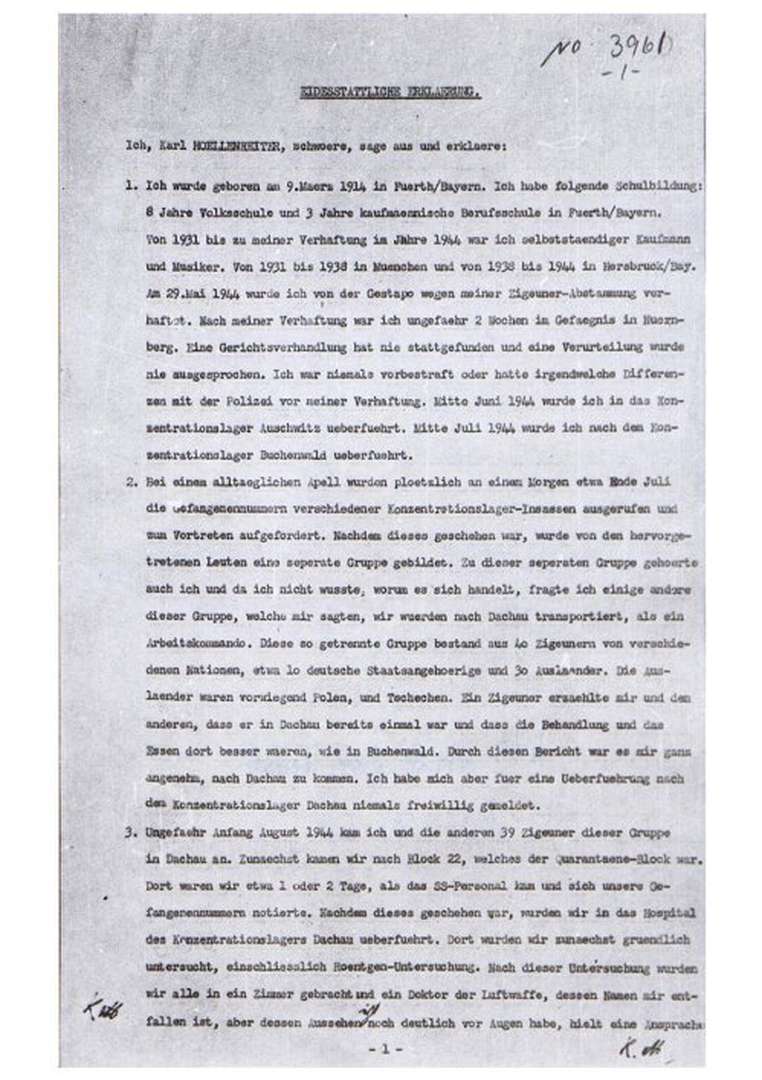
Karl Höllenreiner gave evidence to a US investigator in June 1947. He had survived the torture-like saltwater experiments carried out on 40 Sinti and Roma in the Dachau concentration camp on behalf of the German Air Force and was a prosecution witness at the Nuremberg ‘Doctors’ Trial’. Only a very small number of those involved in the crimes against Sinti and Roma were ever put on trial, while even fewer were convicted for their actions.





